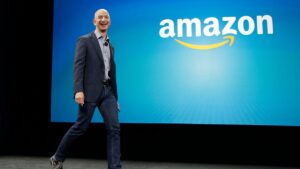The unbanked population in Nigeria totaled 64 million in 2021, and though rising mobile money adoption reduced that to 40 million in 2022, the number is still huge as it is higher than the population of entire countries. This is largely because more than 40% of the country’s population lives in remote zones that lack access to legacy banks and mobile money networks, and the fact that many Nigerians lack official identification documents needed for banking registration.
Africa’s biggest economy also faces existential challenges in the access of formal credit. The National Bureau of Statistics (NBS) estimates that 70% of bank account holders in Nigeria lack access to loans. According to a 2022 Gender Center for Excellence report, 98% of Nigerian women are locked out of access to credit.
Even as mobile money—or services that allow people to deposit and withdraw cash by text—begins to replace standard bank accounts in Africa, their loans are often limited. And in Nigeria, one fintech entrepreneur has built an alternative source for people to access formal credit: their social media profiles.
Faith Adesemowo is co-founder and CEO of Social Lender, a financial services platform that connects users with microloans. Social Lender’s algorithm will scan users’ social media profiles to compile what it calls a social reputation score, which can be then be used to secure loans. The higher your social reputation score, the higher the loan amount you qualify for.
In Adesemowo’s core model, a person’s online activity—from how long they’ve held their social media accounts to the people they engage with—helps validate their creditworthiness. As of January this year, Nigeria had 31.6 million social media users and 122.5 million internet users.
The company has also moved to include users who lack access to the internet; these users own feature phones, rather than smartphones, and have no digital presence. With services available via SMS or USSD, Social Lender generates “social guarantors” for applicants, or people who can vouch for borrowers’ creditworthiness.
“What we’ve built now is an alternative credit score,” Adesemowo told BBC News this year. In effect: Users who once had no traditional route to obtaining a loan can now get one in as fast as ten minutes.
To date, Social Lender has partnered with a range of Nigerian financial institutions—including Sterling Bank, Absa Bank, FCMB Microfinance, Unity Bank, iTrust, GOXI Micro Insurance, and FBN Micro-insurance—to offer its users credit.
This story is part of Quartz’s Innovators List 2023, a series that spotlights the people deploying bold technologies and reimagining the way we do business for good across the globe. Find the full list here.





